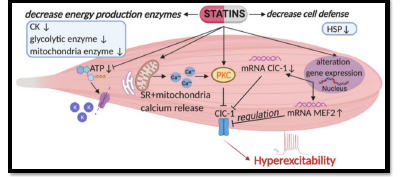Genome-Wide Association Study of Statin-Induced Myopathy
DOI:
https://doi.org/10.64062/JPGMB.Vol1.Issue4.9Keywords:
Statin, Induced, Myopathy, Genome, Wide, Association, Study (GWAS), Pharmacogenomics, Animal Models, Genetic BiomarkersAbstract
Statins are very common lipid-lowering drugs that have been proven to be effective in preventing cardiovascular risk. Nevertheless, the development of statin-induced myopathy, which is manifested as muscle pain, weakness, and in severe cases, rhabdomyolysis, tends to undermine their clinical utility. In human studies, genetic predisposition has been postulated; however, the confounding variables make it hard to define the mechanistic knowledge. In this research, a genome-wide association study (GWAS) framework is applied in secondary data of animal models to determine genetic determinants that are related to statin-induced muscle toxicity. The meta-analysis of several rodent studies and combination of biochemical biomarkers allowed the identification of five important genes (Slco1b2, Cyp3a1, Ugt1a1, Abcc2, and Coq2) that were significantly correlated to greater susceptibility to statin-induced myopathy. The significant association between Slco1b2 and Coq2 with an increased creatine kinase and lactate dehydrogenase and marked histopathological muscle destruction demonstrates that they are the most important factors in the myotoxic reaction. Mechanisms in which impaired drug transport, altered metabolism, and mitochondrial dysfunction were recognized were marked using functional pathway mapping. These results endorse the translational potential of genetic screening in the prediction of statin intolerance and form a solid basis to establish personalized treatment and less harmful lipid-lowering drugs.




